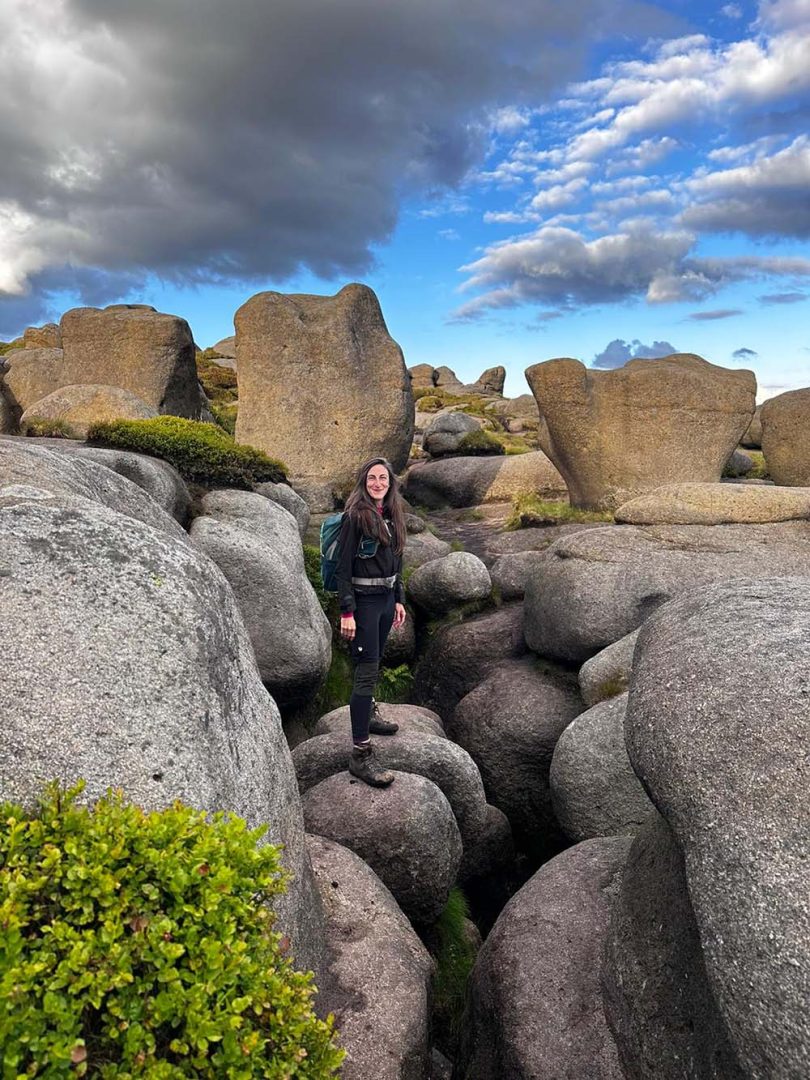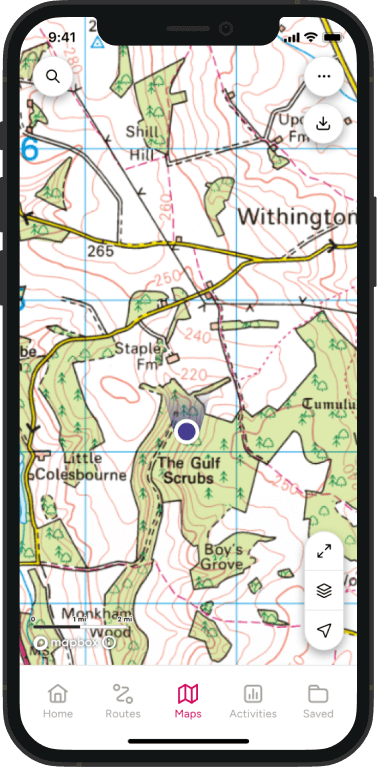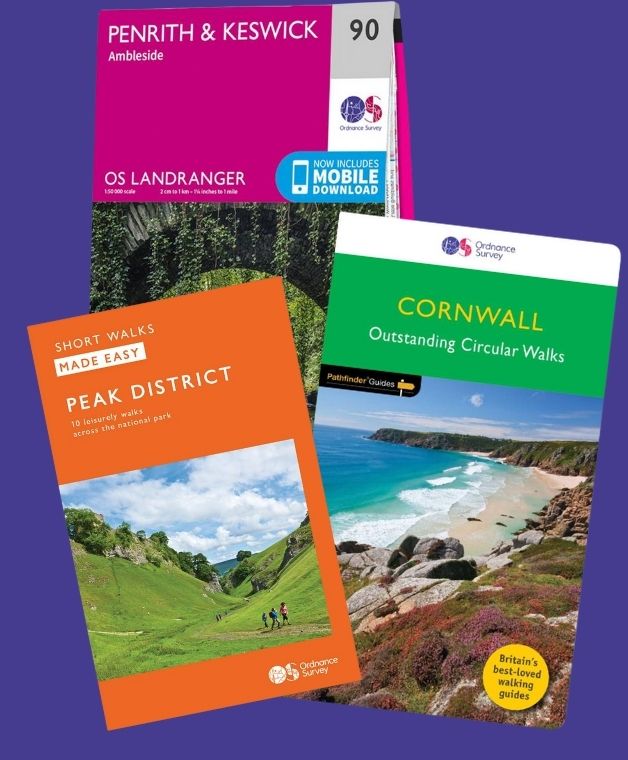Learn how to become part of a Mountain Rescue team
OS Champion, Emily Thompson, talks us through everything you need to know about Mountain Rescue Teams, and what to consider if you would like to become part of one.
Mountain Rescue teams are usually associated with areas such as the Lake District, Wales, and the Highlands of Scotland, but there are teams also operating in areas such as the South Pennines, Dartmoor and the Scottish borders. These teams all provide the same search and rescue cover.
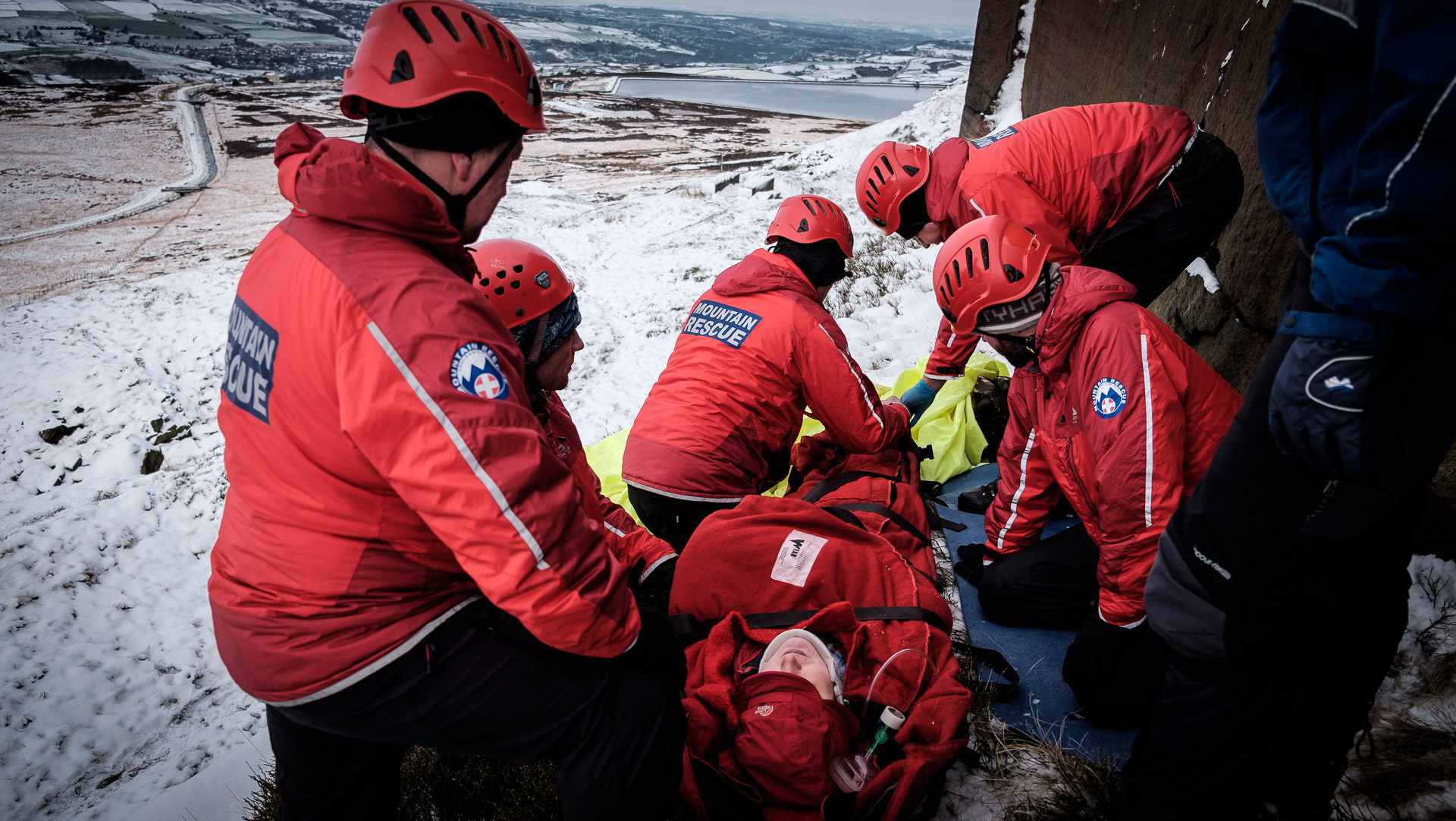
What is Mountain Rescue?
Mountain Rescue teams are called out by the Police or local Ambulance services to help in searching for missing and/or injured people, often in mountainous areas or wilderness environments. Mountain Rescue teams sometimes evacuate casualties from remote or difficult to access terrain.
Mountain Rescue Team members are all volunteers who live close to, or within, a specified catchment of the team area. They can be called out at any time of day or night to help with rescue or search activities. Specialist equipment, including helicopters and search dogs, are sometimes used to assist the team in their role, depending on the access and severity of the incident where the call out is made.
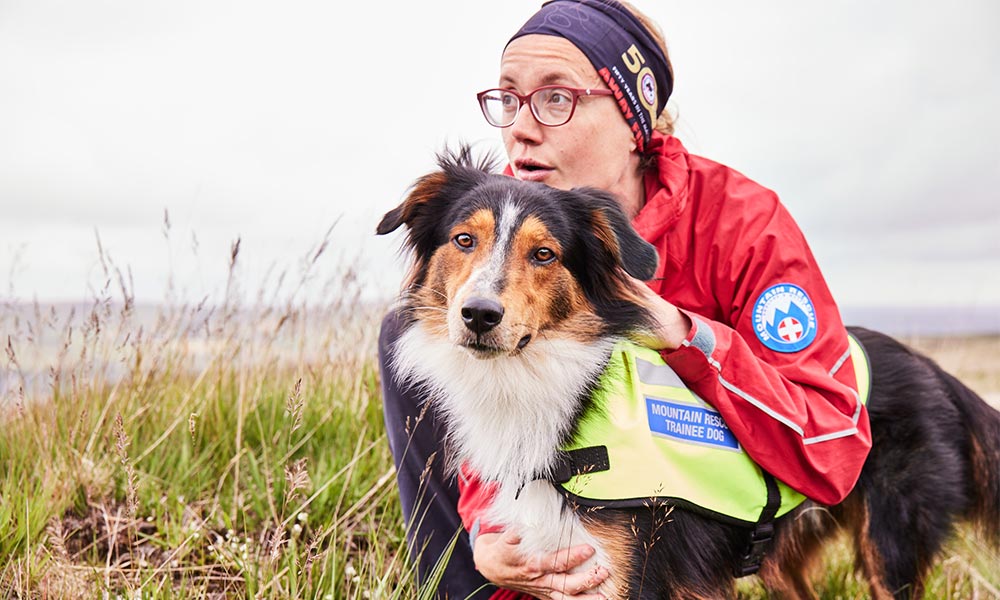
Some teams also cover urban areas, so search and rescue duties cover a variety of activities:
- Missing people searches on derelict urban land
- Supporting government agencies in extreme weather, such as floods
- Supporting emergency services at major incidents
- Emergency planning with emergency services
A personal perspective of being a Mountain Rescue Team member
I joined Holme Valley Mountain Rescue team in 2009, whilst I was training to be a mountain leader. I quickly learned a lot of new skills in navigation, search techniques and first aid. In that time I also gained lifelong friends who I have been on amazing trips with. In that time I have been able to contribute to running a vital service in my local community.
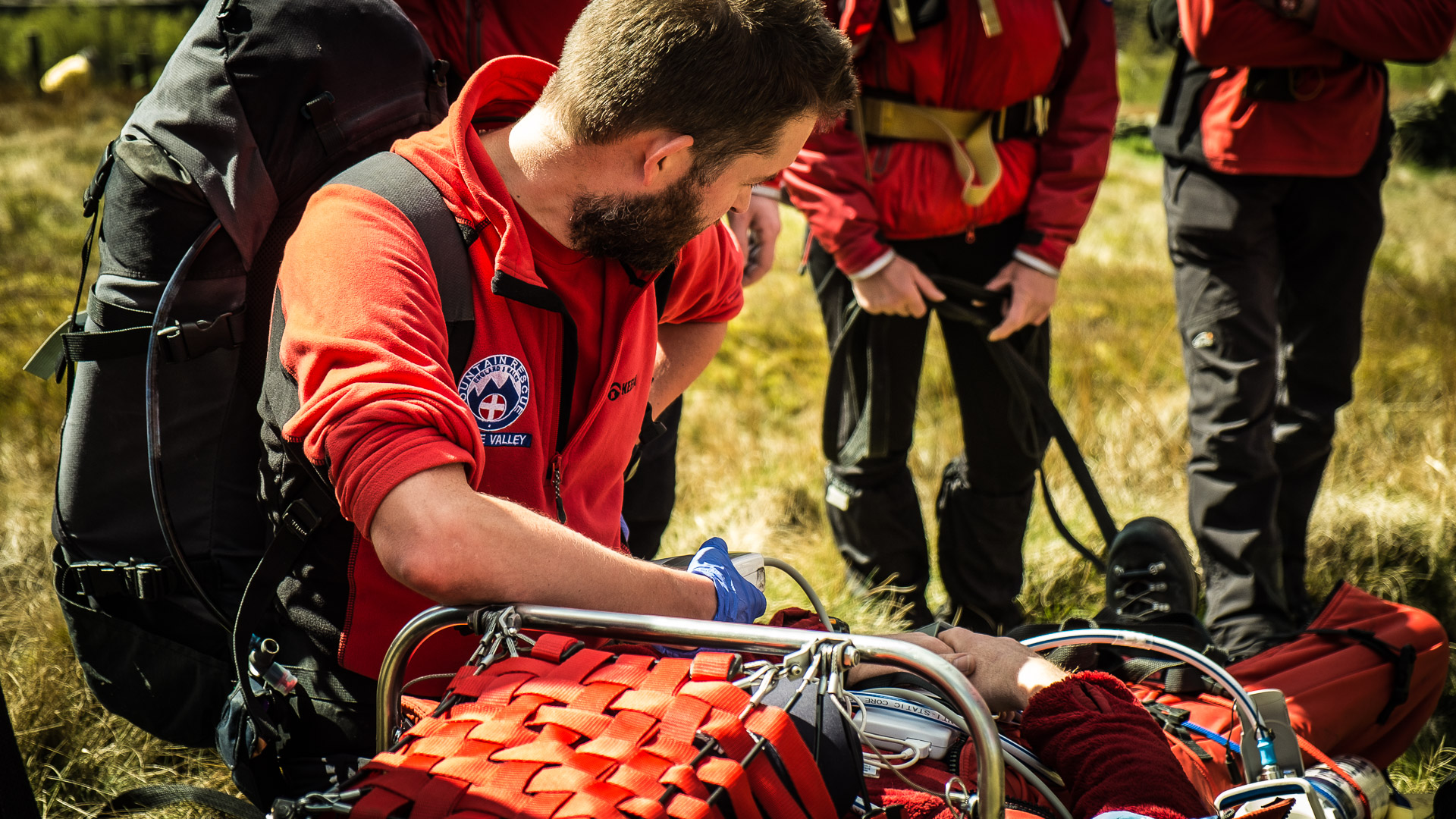
Things to consider before you join an Mountain Rescue Team:
1. How much time can you commit?
Being a team member is a fairly demanding role, even in a less busy team like mine in the Mid Pennines. You need to be able to commit to approximately one to two years training before you get on the call out list. Training involves both evenings and weekends, and leads to you eventually meeting a strict criteria on a range of subjects.
On the call out team, you need to be able to commit to continuing training and be available for call outs at any time, day or night. Within each team there are also dedicated party leaders to coordinate activities on the hill, specialist’s in rope rescue and casualty carers – among other roles.
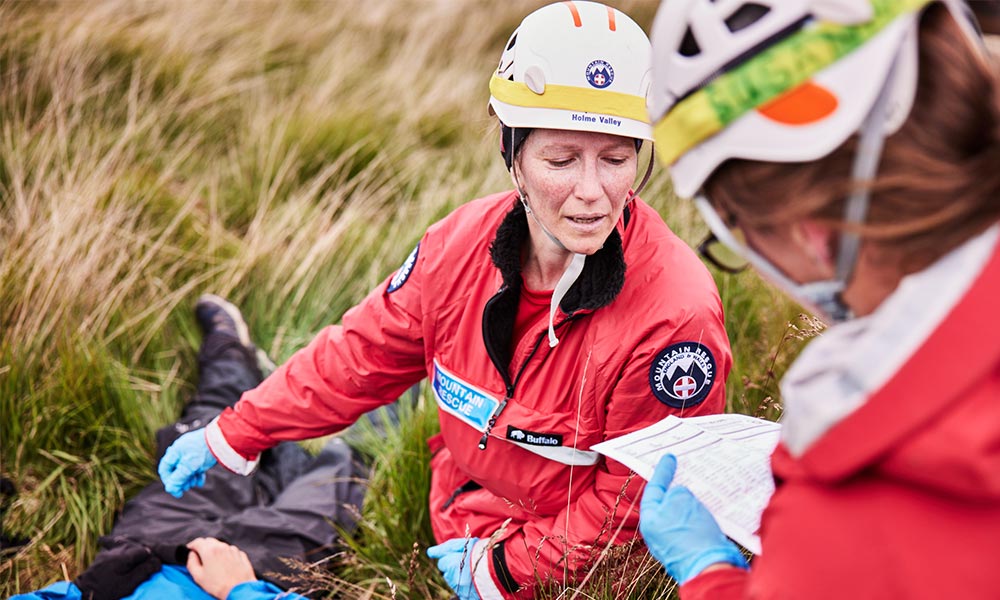
2. Can you cope with being out and active for a long time?
Call outs are often long, involving a lot of standing around waiting to be deployed. They can also involve working well into the night.
Teams are often called out to assist police searches, as searching open moorland or dense woodland requires our specialist skills. It is often starting to get dark when we begin our searches, so you need to be able to cope working late into the night – even if you have had a long day at work and need to be up again in the morning.
3. Can you fit it around your work commitments and family life?
Will your employer give you the flexibility to drop everything if you get a call? This isn’t always needed, as teams are made up of people who have a 9-5 job, like me, and people who are self-employed and can be more flexible. However, I still know that if i get a call, I could, if needed, leave work. You also need to consider whether or not your partner would be happy with coming second if you get a call and had plans for the evening.
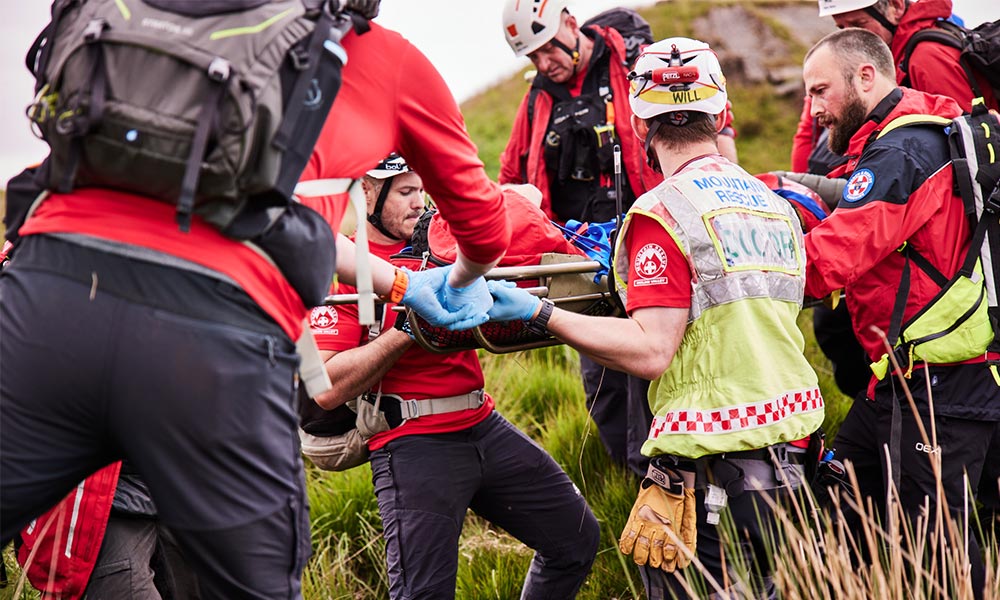
4. Are you fit enough?
Can you help carry a stretcher across rough moorland and rocky terrain? (it is a myth that everyone who is rescued is airlifted by helicopter). Are you capable of being out on the hill for hours searching for a casualty?
5. Are you willing to help with other activities the team does?
This includes fundraising, managing equipment and vehicles, and helping with fetes and galas to promote the team.
How to apply
Every team has different application and induction processes but most have a set period in the year when they open for applications to ensure that new trainees can learn together. Teams can be overwhelmed with applications so many have a selection process which includes an informal discussion with the team leadership and an exercise out on the hill to determine suitability and give people a feel for what being in the team involves.
The training processes typically involve a year-long induction when you learn skills in call out process, how to use the various equipment in the team, search techniques and medical care for example. After this there’s usually an assessment day to go through before you get to be a probationary call out member.
So it’s a big commitment even before you get onto the call out list.
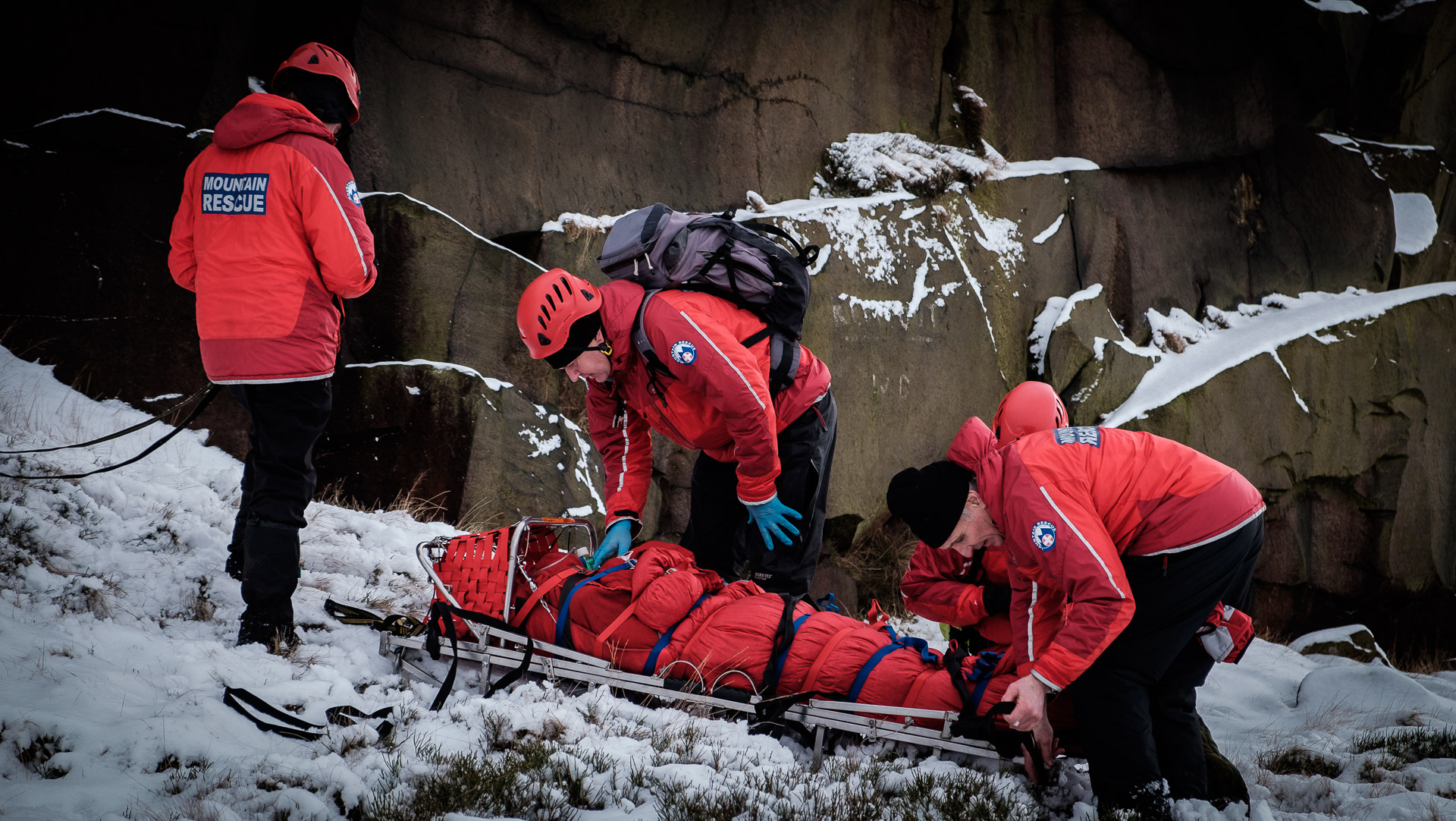
Find out more
Check out MREW or Scottish Mountain Rescue to see if there’s a team in your local area. Most teams have strict induction periods for new trainees and will do a pre-assessment of your skills to check if it is worth you committing the time.
If you don’t have the time but would still love to get involved, most teams also have a dedicated support group who help them with fundraising at galas, as well as being exercise casualties for training.
It generally costs around £40,000-£60,000 a year to keep a team going in terms of vehicles, first aid and other equipment, radios and clothing. So get involved and make an impact!
How to contact Mountain Rescue in an emergency
If you ever need to contact Mountain Rescue, call 999 (or 112 from a mobile) and ask for police. You will need to provide your location using the grid reference if possible or key landmarks. It is then very important to stay where you are until the Mountain Rescue team have made contact.
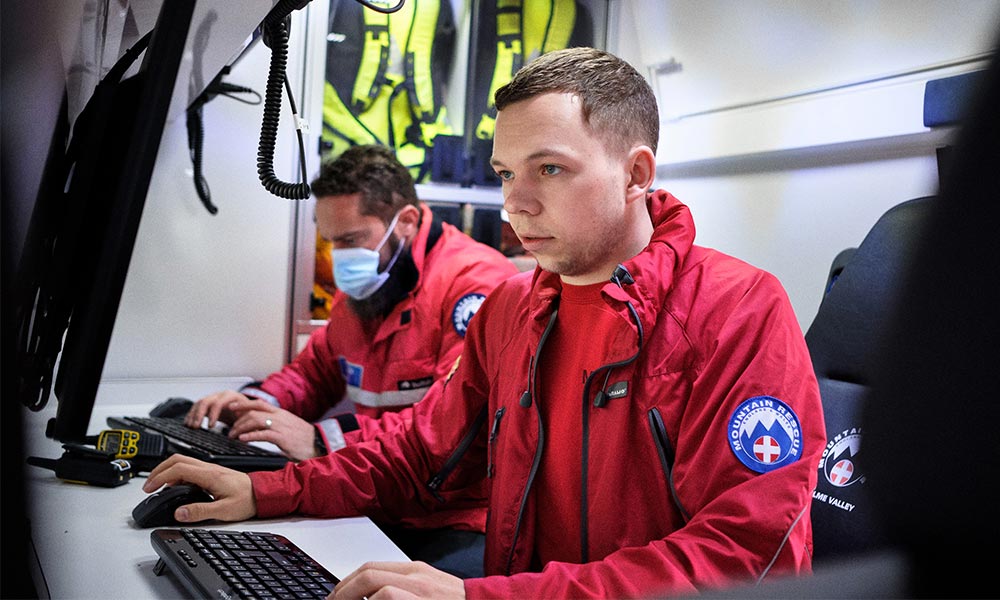
Keeping safe
One of the best ways to support Mountain Rescue is to do as much as you can to ensure that you don’t need them!
For your next adventure take a map and compass (and learn how to use them) so you can navigate yourself back to safety. It is also important to take a torch and batteries and adequate food and drink with you in case it takes longer than expected to return. If wet conditions are expected, ensure you have suitable waterproofs plus a map case to keep your map protected.
Just in case you do need to call for help, take a fully charged phone with you. It’s a good idea to use a waterproof phone case unless you are sure your pocket or bag is fully waterproof. For longer trips (or where you are using a phone to navigate) take a portable power device to recharge your phone as needed.
In case the worst should happen, give someone a copy of your planned route and expected return time. This can be family, friends or even your accommodation or local police station – but remember to let them know when you are back safely.
More useful information
- How to plan a walking route that’s enjoyable, accessible and safe
- Beginners guide to outdoor first aid
- Buy a paper map, and an OS compass or subscribe to OS Maps to plan routes and print maps at home

